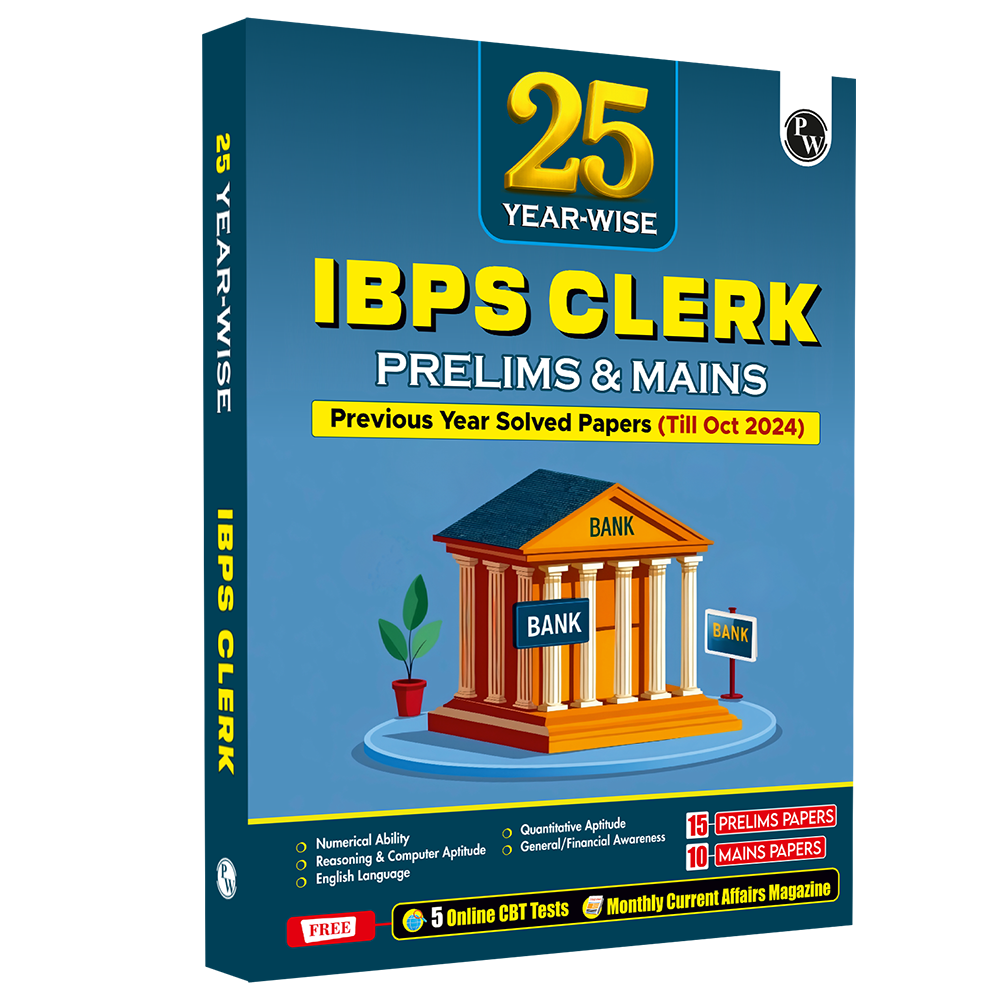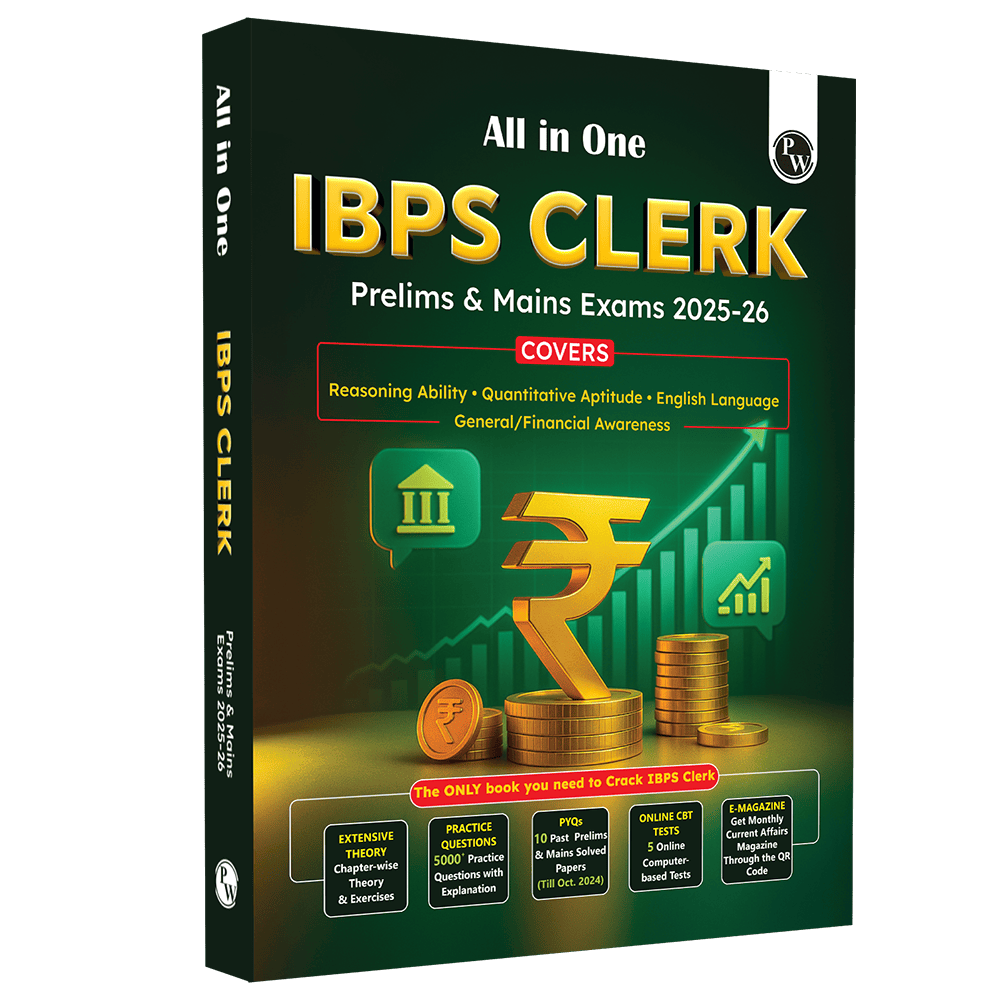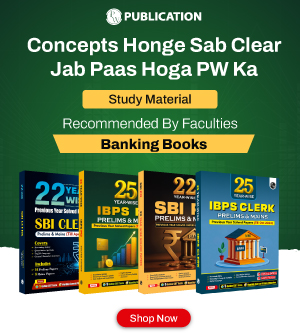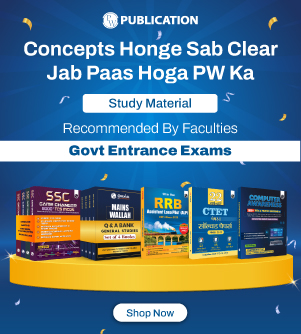IBPS Clerk Preparation Tips for Upcoming Exams
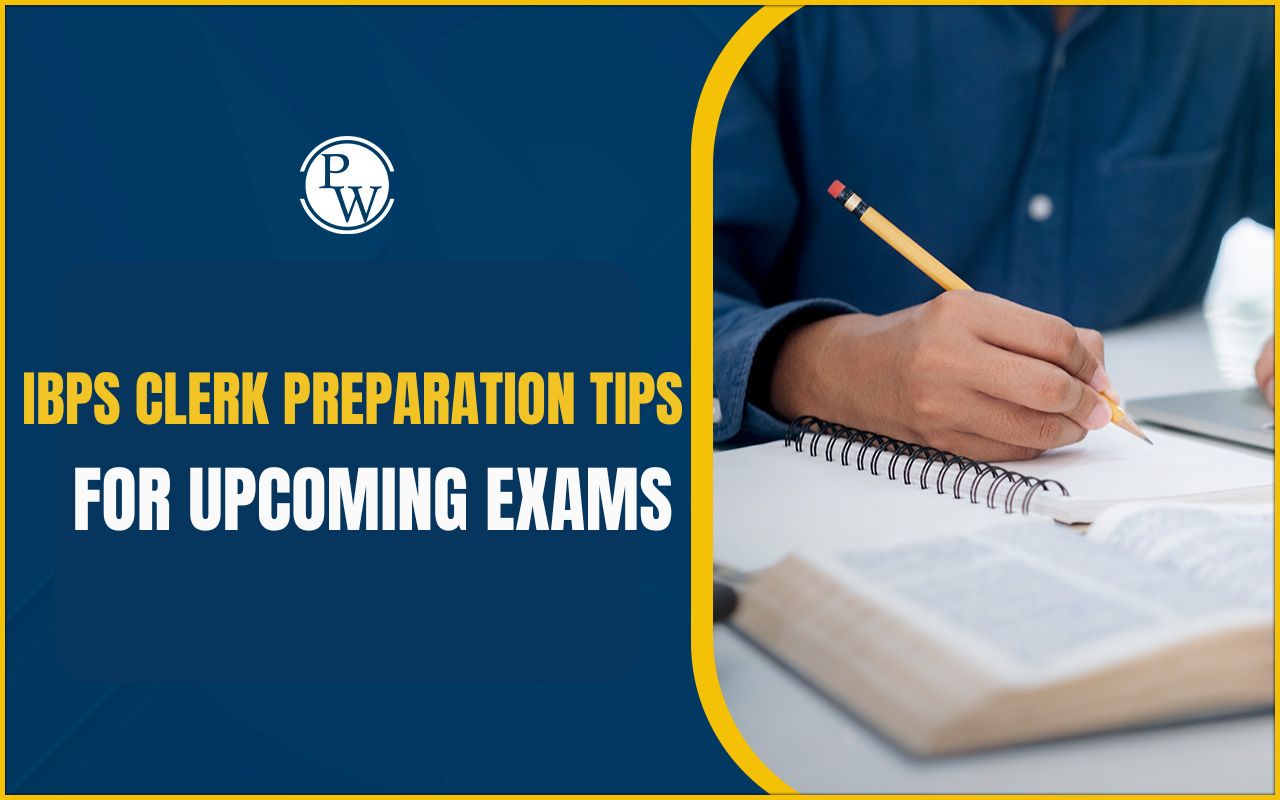
IBPS Clerk exam is an important milestone for many who dream of a banking career in India. It is known for its difficulty level, large number of applicants, and competitive nature. It's time to get serious. We provide a complete explanation for IBPS Clerk preparation, along with simple tips that are easy to follow. Whether you're just starting out or in the middle of your study plan, this can help you learn how to prepare for IBPS Clerk and boost your chances of success.
Check Out: Banking Books
IBPS Clerk Preparation Journey
The IBPS Clerk exam is a gateway to becoming a bank officer. The exam happens in three stages
-
Prelims
-
Mains
Each stage tests different skills. The Prelims exam has 100 questions to solve in 60 minutes. The Mains exam is longer and more detailed.
Prelims Exam Pattern:
-
Duration: 1 hour
-
Sections: English (30 Q), Quant (35 Q), Reasoning (35 Q)
-
Total Marks: 100
-
Negative Marking: Yes, 0.25 per wrong answer
Mains Exam Pattern:
-
Duration: 3.5 hours
-
Sections include:
-
Reasoning & Computer
-
English
-
Data Analysis
-
General Awareness
-
Descriptive Test (Essay & Letter)
Your IBPS Clerk preparation should start at least 4-6 months before the exam date. This gives you enough time to learn all the topics properly. Many students make the mistake of starting too late. Early preparation helps you build strong basics and practice well.
How to Prepare for IBPS Clerk
When you think about how to prepare for IBPS Clerk, start with understanding exam. The exam checks your skills in English, Math, Reasoning, and General Knowledge. Each subject needs different types of practice.
-
Begin with topics you find easy. This builds your confidence. Then move to harder topics slowly. Make sure you understand the basic ideas before trying difficult questions. Many students jump to hard problems too quickly and get confused.
-
Create a daily routine that includes all subjects. Spend 2-3 hours studying every day. Take breaks between subjects to keep your mind fresh. Remember, steady practice works better than studying for many hours on some days and not studying on others.
Learn Topics
Start by understanding the basic rules and concepts in each subject—especially Quantitative Aptitude, English Language, and Reasoning Ability. If your basics are weak, the advanced questions will become harder to solve.
Focus on these key areas:
-
For Quant: Simplification, Averages, Percentages
-
For English: Grammar, Comprehension, Vocabulary
-
For Reasoning: Puzzles, Coding-Decoding, Syllogisms
Read More: How to Crack Bank Exam in First Attempt
Complete IBPS Clerk Preparation Strategy
Your ibps preparation needs a clear plan. Here is a simple way to organize your studies:
Month 1-2: Learn the Basics
-
Study one subject each day
-
Practice 30-40 easy questions daily
-
Learn new words in English
-
Read newspapers for current events
Months 3-4: Build Speed and Skills
-
Solve more questions in less time
-
Take practice tests once a week
-
Focus on your weak areas
-
Learn shortcuts for math problems
Months 5-6: Final Practice
-
Take full-length practice tests
-
Review all your mistakes
-
Study recent current affairs
-
Practice writing skills for mains exam
Keep track of your progress. Note which topics you find hard and spend extra time on them. This helps you improve faster.
Smart IBPS Clerk Preparation Strategy for Each Subject
Your IBPS Clerk preparation strategy should be different for each subject. Here is how to approach each one:
English Language: Start with grammar rules.
-
Learn 10-15 new words every day. Read newspapers and magazines to improve your reading speed.
-
Practice different types of questions like fill-in-the-blanks and error finding.
-
Practice Cloze Tests and Error Spotting
-
Attempt daily comprehension passages
Quantitative Aptitude: Begin with basic math topics like percentages and ratios.
-
Learn multiplication tables up to 30.
-
Practice mental math to solve problems faster.
-
Focus on data interpretation as it carries good marks.
-
Revise formulas often
-
Aim for 30–35 questions daily from different topics
Reasoning Ability: Start with easy topics like coding and blood relations.
-
Practice puzzles regularly as they take time to master.
-
Learn to draw diagrams for seating arrangement questions. This makes solving much easier.
-
Practice Coding-Decoding and Direction Sens
-
Learn to use elimination technique
-
Take 1 reasoning mock test every alternate day
General Awareness: Read about banking terms and RBI policies.
-
Follow economic news regularly.
-
Make notes of important events and review them weekly.
-
Focus on the last 6 months of current affairs.
-
Focus on RBI rules, banking news, and government schemes
-
Revise weekly current affairs on Sundays
Resources for IBPS Clerk Exam Preparation
Good study materials make your IBPS Clerk exam preparation more effective. You do not need too many books. Choose 2-3 good books for each subject and study them well.
|
Book Name |
Link |
|
IBPS Clerk PYQ |
|
| All in One IBPS Clerk Prelims & Mains Exams 2025-26 | |
|
IBPS PO PYQ |
|
|
Bank PO and Clerk Exams 2024 Previous Year Solved Papers |
|
|
Quantitative Aptitude, Reasoning Ability and English Language Combo Set of 3 Books |
|
|
Banking Modules Combo Set of 6 Books |
|
|
SBI PO and SBI Clerk Prelims & Mains Previous Year Solved Papers Combo Set of 2 Books |
Create your own notes while studying. Write down important formulas, tricks, and facts. These notes will be very useful during your final revision.
Time Management During Preparation for Bank Exam
The most important thing in the competitive exam is time. Good time management is key to successful preparation for the bank exam. Plan how much time to spend on each subject daily. Most students should spend:
-
40% time on their weakest subject
-
30% time on moderate subjects
-
20% time on strong subjects
-
10% time on revision and current affairs
Use a timer while practicing questions. This trains you to work under time pressure, just like in the real exam. Start with more time per question and slowly reduce it as you get better. Take one day off every week to rest. Your brain needs time to process what you have learned. Light exercise and good sleep help you study better.
Revision Techniques That Work
-
Create one notebook for key points and formulas
-
Use color-coded notes to mark important topics
-
Revise in weekly cycles: Monday = Quant, Tuesday = English,like this.
-
Revisit mock test errors and try those questions again
IBPS Clerk comes from smart preparation, not just hard work. Follow a clear plan, practice regularly, and stay positive. Students before you have achieved their dream of becoming bank officers using these same methods. Start your preparation today if you have not already. Every day of good preparation brings you closer to your goal. Trust in your abilities and keep working steadily toward success.
Remember, becoming a Probationary Officer is not just about passing an exam. It is about starting a career that serves people and contributes to the country's economic growth.
Also Read: IBPS Clerk Syllabus 2025
IBPS Clerk Preparation Tips FAQs
1. What is the selection ratio for IBPS Clerk?
The selection ratio varies each year but is typically around 1:100 to 1:200, meaning 1 candidate gets selected for every 100-200 applicants. The exact ratio depends on the number of vacancies and total applications received each year.
2. What is the exam pattern for IBPS Clerk 2025?
IBPS Clerk has three stages: Prelims (100 questions in 60 minutes), Mains (157 questions in 3.5 hours including descriptive test), Prelims has English, Quantitative Aptitude, and Reasoning. Mains adds General Awareness and Computer Knowledge along with descriptive writing.
3. What is the minimum qualification required for IBPS Clerk?
You need a bachelor's degree in any field from a recognized university. There is no specific percentage requirement, but you must have completed your graduation. The age limit is 20-30 years, with relaxation for reserved categories as per government rules.
4. Is there an interview round in the IBPS Clerk exam?
No, there is no interview for the IBPS Clerk exam. Final selection is based on marks obtained in the Mains exam and document verification.
